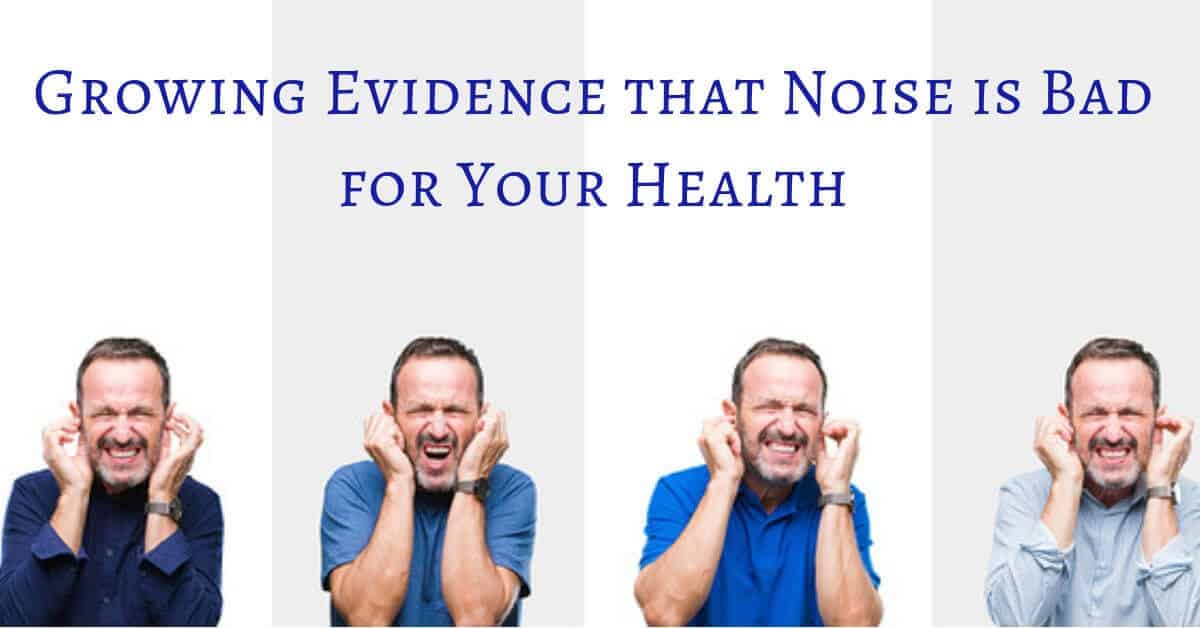The world around us is getting noisier every day, and this is coming at a high cost to our hearing health. More and more people are struggling to hear, and even children and teens face higher rates of hearing loss than ever before. Researchers are taking notice, and there’s growing evidence that noise is extremely bad for your health.
Global Rates of Hearing Loss on the Rise
According to the World Health Organization (WHO), around 466 million people around the world have hearing loss, and around 34 million of these people are children. They estimate that by the year 2050, global rates of hearing loss will rise to over 900 million people. More young people than ever are experiencing hearing loss early in life, and the WHO states that 1.1 billion teens and young adults risk hearing loss due to exposure to loud noises at school, in the community, and during extremely loud recreational activities.
Noise is Bad for Your Health
No one doubts that noise is bad for your health. Researchers around the world have been studying links between hearing loss and health outcomes. From high blood pressure to coronary heart disease and a greater risk of diabetes, living with untreated hearing loss is bad for your health. Hearing loss leads to sleep disturbances, insomnia, fatigue, irritability, increased stress, and mood disorders. It also affects your ability to stay active, and those with hearing loss are far more likely to remain at home or within their own small community. Hearing loss leads to poor communication, and relationships suffer. Those with hearing loss risk social isolation, loneliness, and depression. Hearing loss also leads to rapid cognitive decline, and researchers have found correlations between untreated hearing loss and an increased risk of developing dementia or Alzheimer’s Disease.
For children and teens, hearing loss impedes their ability to learn and grow, and brain development is affected. It’s also difficult to interact with their peers, and their social and emotional development is impacted by hearing loss.
Where Is the Noise Coming From?
If people are facing higher rates of hearing loss, where is all the noise coming from? Our cities are becoming noisier every day, and noise pollution is becoming a major problem. Neighborhood noises include traffic noise, air traffic noise from the nearby airport, construction noise from the high-rise being built a couple blocks away, and even includes the noise in our own back yards, from the leaf blower to your neighbor’s loud sound system.
Limiting Noise Exposure
To maintain your hearing health, it’s important to be aware of the noise in your environment, and protect both yourself and your family from noise exposure at work, at home, and during leisure activities.
If you work in a noisy environment, like in construction or manufacturing, make sure you’re always wearing appropriate hearing protection when on the job site.
At home, teach your family about safe listening practices. Turn down the volume on the TV, and close the windows if the traffic noise is very loud. If you have teenagers, it feels like you never see them without earbuds in their ears, and sometimes you can even hear the music coming from their earbuds. This is a clear sign that the volume is far too loud, and they’re risking their hearing. Talk about the risks of hearing loss with your teenagers, and help them monitor their listening habits. It’s a good idea to follow the 60/60 rule. Never listen with the volume higher than 60%, and take a break every 60 minutes to give your ears a rest.
Leisure activities can also be notoriously loud, whether you’re out for the night at the pub or club, attending a sports event or music concert, or even participating in your favorite weekly fitness class. Think about the noise levels at these places. If you have to yell to be heard by the person next you to, it’s too loud, and you should be wearing ear plugs to protect your hearing.
Book a Hearing Test
If you’re worried you might have hearing loss, and aren’t hearing as clearly as you used to, book a hearing test and find out what sounds you’re missing. Visit us today at My Hearing Centers, and do the right thing for your hearing health.


